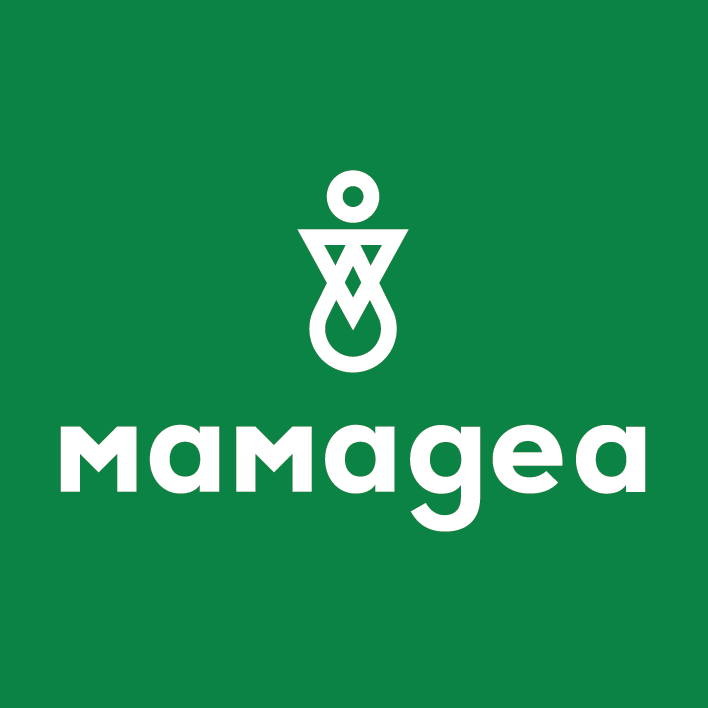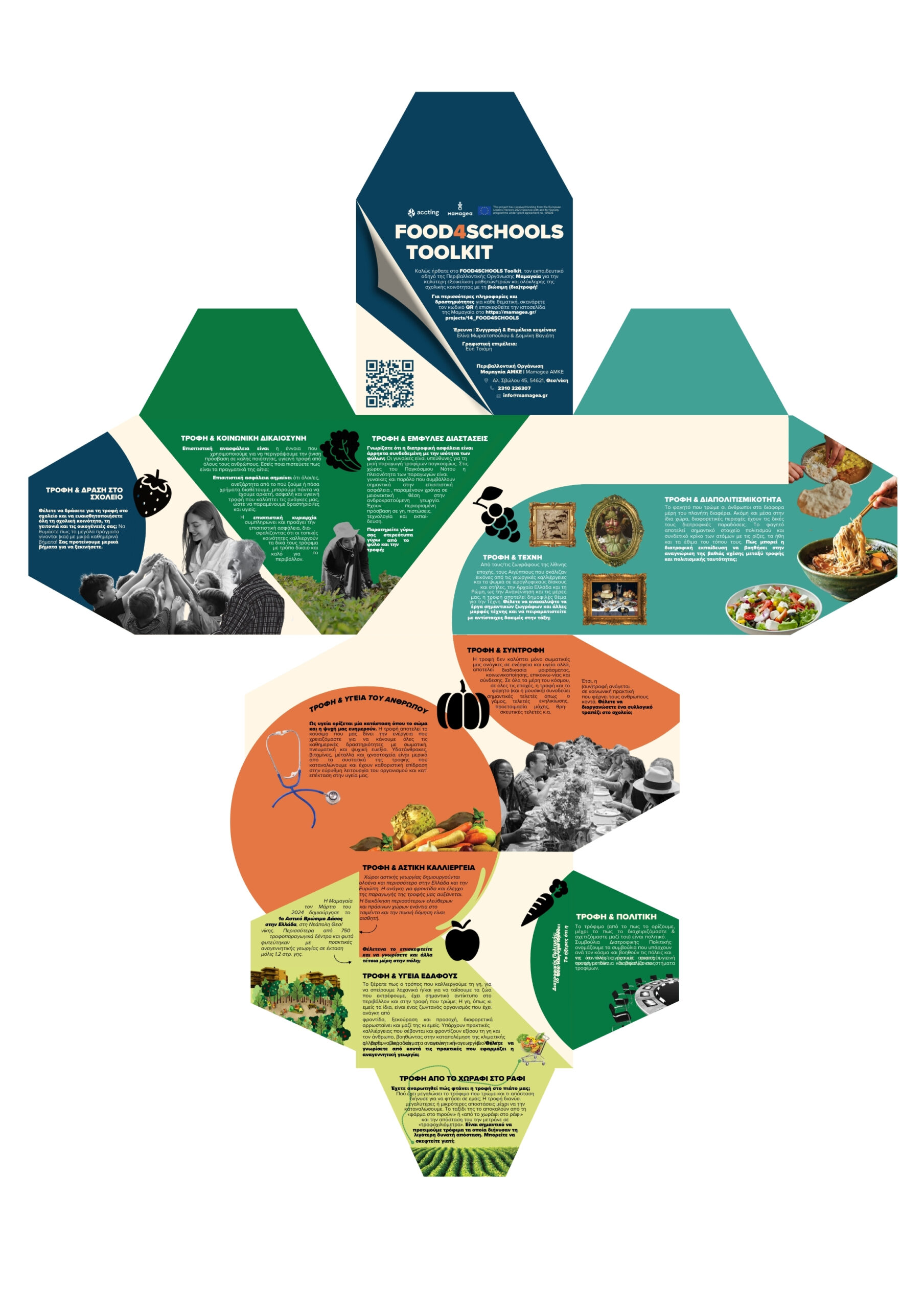Food4Schools: A toolkit to inspire healthy and sustainable food initiatives in schools
Food4Schools is a project led by Mamagea, in response to ACCTING’s call for pilots Food Everywhere Toolkit. This call aims to help shape the food choices of future generations by making healthy and sustainable food available everywhere in schools.
Mamagea is an environmental organisation based in Thessaloniki, Greece, aiming at improving the natural and social environment. It envisions green and sustainable cities with active and participatory neighbourhoods.
The Food4Schools project aimed at creating the framework and procedures needed for the implementation of the Farm to Fork strategy at a local level and specifically in schools of the wider area of Thessaloniki and Central Macedonia.

Activities
The main project’s activity was to be the creation of a toolkit, resulting from the following:
- Desk research and data analysis
- Five participatory workshops
- A local action plan
In order to go about implementing the Farm-to-Fork EU Strategy at the local level in Thessaloniki schools, the project team undertook the creation of:
1. A Local Action Plan on the ways in which sustainable food will be introduced into school meals. This was produced in cooperation with the municipality of Thessaloniki and resulted in the creation of the Thessaloniki Food Council, charged with promoting healthy, environmentally sustainable food to local schools.
A decision was made to focus the project on nursery schools of Thessaloniki. This shift in focus resulted from a series of consultations with local policy makers, as well as the findings of our desk-research, all of which pointed that in order for the LAP to be ‘actionable’, it made better sense for it to focus on the procurement services falling within the authority of the local municipality, which in Greece would be municipal nursery schools.
2. A two-part Educational toolkit that aims to familiarise school communities with the production and consumption of more sustainable food:
- Firstly, outlining the ways in which administrative and institutional actors can promote systemic changes that promote sustainable nutrition in schools, while connecting them with small and medium-sized organic farmers and producers; and
- Secondly, raising awareness, educating and motivating school communities (teachers, students, parents and school staff) to engage in sustainable nutrition practices.
The content of this Toolkit is based on:
- A three-part research report that explores these questions by considering:
- the research conclusions of three previous Mamagea projects on sustainable nutrition in Thessaloniki;
- listing a number of best practices and case examples across Europe on sustainable school food procurement; and
- providing a mapping of the present situation of school food procurement in Greek schools.
- 5 participatory workshops aimed at capturing and co-designing processes, actions and steps for the implementation of the “Farm to Fork” Strategy in school environments and at creating educational materials for school communities through collaborative mapping, problem-solving techniques & critical discussions on sustainable nutrition
The overall objective of the Food Everywhere Toolkit is to develop a set of tools and resources to inspire, motivate and assist teachers, principals, students, people working in various jobs within schools, and potentially also parents, to launch initiatives at their school in which healthy and sustainable food is available everywhere in the school and becomes part of its DNA. Food4Schools achieved the maximum possible success vis-à-vis this objective, taking a systemic approach (desk- and field-research, policy-work and educational content creation) in supporting more sustainable school-food systems with ripple effects across the city level. A number of resources (toolkit, action plan, research report) have been developed and made accessible to facilitate this transition. Moreover, the engagement of multiple stakeholders has been carefully planned throughout the project and so was its dissemination.
The project continues with support from EIT NEB CONNECT and is exploring crowdfunding options to expand the educational outreach of the toolkit.
The Food4Schools approach can be adapted to other European contexts looking to introduce sustainable food in schools. Key elements that support scalability include an adaptable toolkit with examples, methodologies, and educational content suitable for different contexts, and a participatory model that brings together municipalities, educators, families and local food producers to co-design food strategies tailored to local contexts.

